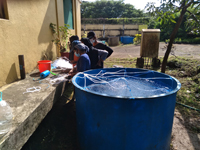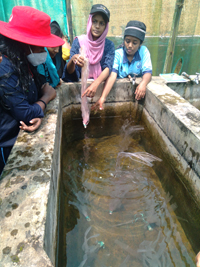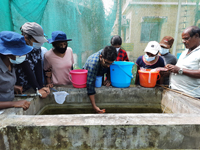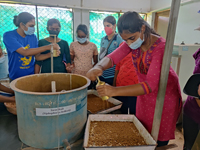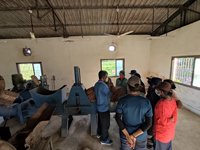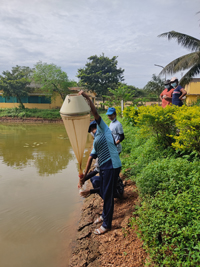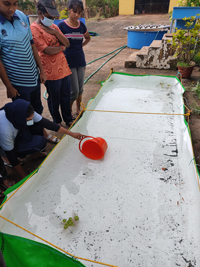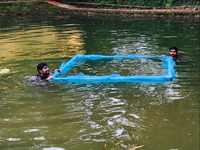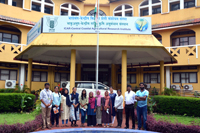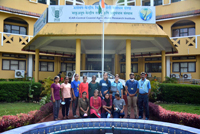
ICAR CCARI organised Rural Fisheries Work Experience training and exposure programme for final year Bachelor of Fisheries Science (BFSc.) students from Kerala University of Fisheries and Ocean Studies, Kochi
ICAR CCARI organised Rural Fisheries Work Experience training and exposure programme for final year Bachelor of Fisheries Science (BFSc.) students from Kerala University of Fisheries and Ocean Studies, Kochi
Rural Fisheries Work Experience programme (RFWE) designed by the Fisheries universities of the country focuses on the exposure to farms/fields/natural ecosystems/technologies in the field of fisheries and agriculture sectors for students pursuing their final year Bachelor of Fisheries Science (BFSc.) programme. In this regard, ICAR CCARI organised a twenty-two days RFWE programme for twenty final year BFSc. students from Kerala University of Fisheries and Ocean Studies, Kochi, Kerala. The training was organised in two batches of nine and eleven students during 1-11 October and 1-11 November 2021 respectively. At the institute, the students were exposed to fisheries section field units (wet laboratory, pond culture, hatchery sections and integrated pond culture systems), integrated farming systems (low land and upland), animal science units, Mango and cashew germplasm blocks, Soil and Water conservation units, Agro-meteorology station, Agro-eco-tourism unit, rice fields, and KVK, North Goa. They were given hands-on-training on fish breeding, seed production, aqua scaping, fish pedicure, bio-floc, aquaponics, cage culture, ornamental fish culture, value added fish products, underwater visual census system, food and feeding biology of fish, fisheries and biodiversity analysis softwares (PAST 4.0, tpsutil, tpsDig, and R). They were given awareness on the research activities carried out in laboratories such as Animal Health, Soil Science, Animal Reproduction and Gynaecology, Crop Science, and Nutrition. In addition to this, field exposure visits were arranged in farmer’s fields/fish markets/fishermen villages/ natural ecosystems such as Betim/Shirdhona fishing sites, shrimp farm, Fisheries Department farm-Dhauji, Integrated Livestock-Fish-Horticulture farm, Agro-eco-tourism unit, Biofloc units, Khazan agro-ecosystem, Salim-Ali Bird sanctuary, Curtorim Lake and biodiversity management committee, Terekhol-Keri reef, and Chorao Island. At the last day, the students participated in the agri-business incubation workshop organised at the institute and projected their novel concepts for the agri-business start-ups. The RFWE programme was co-ordinated by Dr. Sreekanth G.B., Scientist (Fisheries resource management) and Shri Trivesh Suresh Mayekar, Scientist (Fish genetics and breeding).
